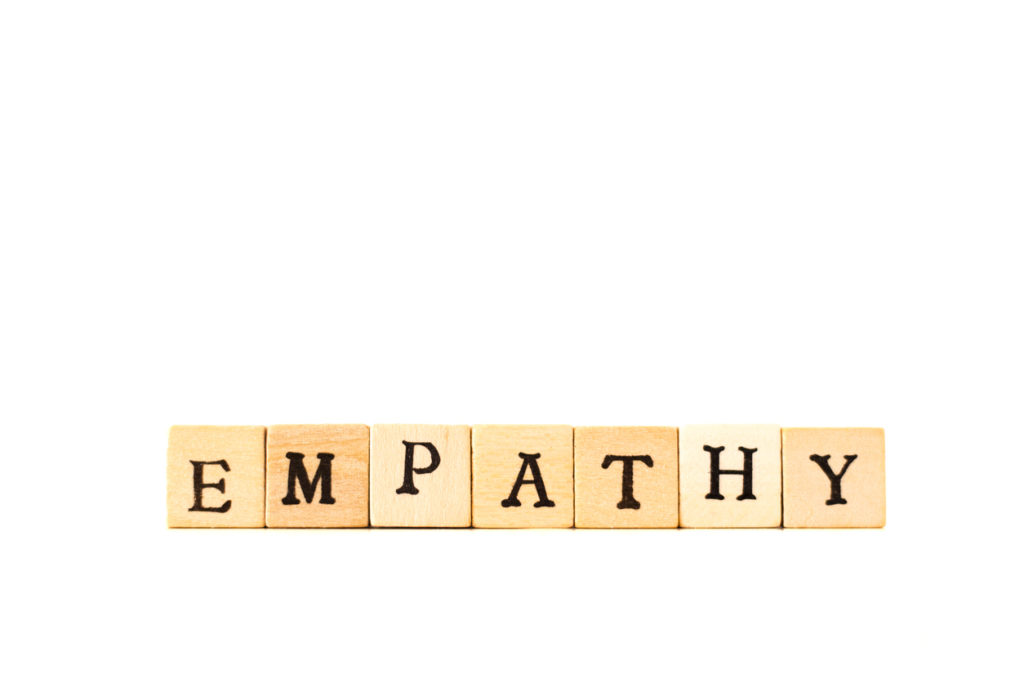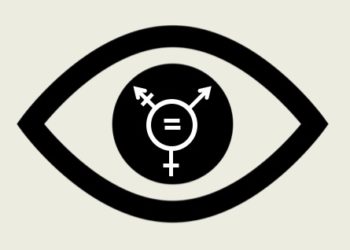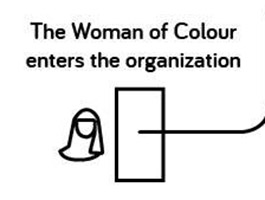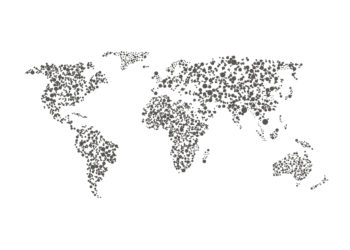Editor’s Note: Today’s post is by John Linton. John is the Director of Linton Scientific Marketing Associates. Over the past ten years, he has provided tactical and strategic marketing services to a number of well-respected publishers and affiliated professional organizations – as both an employee and a consultant. Prior to entering the world of scholarly publishing, John held various marketing product and program management positions with Hewlett Packard in Europe.
I would like to thank Charlie Rapple for her Scholarly Kitchen post a few weeks ago entitled “Calling It Out, Spelling It Out, Stamping It Out: Recognizing and Avoiding Bias”.
By title, Charlie’s post is an attempt to address bias in the scholarly publishing community, but it quickly moves into what I see as the root problems of this issue: diversity and perspective. In my experience, biases are the result of ignorance of perspective caused by insufficient diversity. In short, I think we’ve started at the end of the story, not the beginning. In order to make meaningful change, we need to go back to the beginning.

I’m going to start by saying that I don’t think the problem is rooted in the fact that men refer to women as “ladies.” Nor is it what I assume Charlie refers to as the relatively harmless “bises” (or “cheek kiss”) that people greet each other with in France and other parts of Europe. Or the fact that people comment on personal appearance. Or don’t speak up and stomp out inappropriate comments. I agree with many of her points to a certain degree and I certainly see more people speaking up. I’m not making light of these – I’m just saying we may need a little perspective here.
The problem is not that I, as a gay white man, was told by a colleague in scholarly publishing that I “shouldn’t prance so much” (real story number one). The real problem is not about the time another colleague said to me, “I know that this is politically incorrect, John, but what you just said is so gay” (real story number two). It’s also not about the time I greeted a group of former colleagues at a conference with a friendly “Hi there!” only to have one of look me up and down, scoff and say, “You’re so gay,” then walk away (real story number three). All three stories come from interactions with straight white people – two men, one woman. One of the individuals was my boss at the time their statement was made.
Again, I’m not making light of these comments – two of them were intended to be insulting while the other was just an awkward joke. All three were inappropriate.
When you get right down to it, human beings have a tendency to sometimes say and do some really nasty things to each other for any number of reasons that usually have nothing to do with the person to whom the thing is being said or done. My real stories one, two and three say a lot more about the insecurities of the person saying them than they ever will of me. If you look back at the really offensive things that have been said or done to any of you, I suspect you already know that’s true.
Unfortunately, there are probably people out there – in scholarly publishing and elsewhere – who have endured nastier insults and injuries than most of us.
While nastiness may be a very visible part of human nature, so, too are humor, empathy and forgiveness – in far greater amounts. I may be a gay white man, but I am a human being first and foremost. And yes, sometimes, when I am not the best version of myself, I do or say nasty things to or about my fellow human beings that I should not. While this seems to happen most often when forced to navigate DC traffic, I’m not going to delude myself into thinking that I’ve never done it in the presence of others, whether I meant to, or not. It’s one of the things that makes me, like you, human.
The real problems of bias, perspective and diversity in scholarly publishing arise from the fact that the faces in scholarly publishing do not realistically represent the faces that make up the societies in which we live. If you don’t believe me, walk around your place of work tomorrow or look around at the annual meeting of any of the professional scholarly publishing organizations. If you’re in the US, I think you will see a lack of some statistically significant minorities such as African American men and Latina women. While I speak to this phenomenon from an American perspective, Britons may note a distinct lack of presence of Indian women. In France, it may be men of Middle-Eastern descent. On those last two examples, I defer to the English and the French. My point is that this is not a “US-UK” thing, nor is it a “UK-EU” thing. I’m pretty sure it’s a “WORLD” thing – and it has been around as long as we have.
Having said that, I would like to point out that I have very clearly seen huge changes in my lifetime with regards to what makes me “diverse.” 40 years ago, when I was 10 years old, gay men around the world began dying of “gay cancer” — the disease we now call AIDS. I bring this up to highlight the fact that just 40 years ago, people like me would have had a near 0% chance of making it to the executive leadership team of any organization in the US as openly gay. At the outset of the AIDS epidemic, it appeared as if people like me barely mattered as people.
A few years ago, at the age of 44, I was fortunate to have joined the Executive Leadership Team of AIP Publishing which consisted of, at that time, one gay Caucasian male, one African American female, one Caucasian female, and four straight Caucasian males. Never once during my three year tenure there did I feel that my sexual orientation was an issue or a problem – not even for those with whom I did not always get along. On a wider social scale, I would also like to note that I have younger gay friends today who were actually able to live their gay teenage years openly in middle and high school in the US, with little or no repercussions. As it generally does, the world is changing for the better even if there are days, weeks, months or years where it is not so evident.
As this letter has already gone on too long, I would take this time to offer a single piece of advice that I am trying to follow more and more everyday myself: Empathize.
Seek perspectives that are not your own. Better yet, seek the perspectives of someone completely different from yourself. Most importantly, seek the perspectives of some of the folks who are not making it into the rooms where we work. When we start to see the world through another person’s eyes, put ourselves in their shoes, imagine their feelings and act accordingly, we are helping to change our world for the better.
In closing, and following Charlie’s excellent example, I would like to hear the perspective of one (or both) of the two minorities I mentioned above: African American men and Latino women. It would be fantastic if they, in turn, would “pass the mic” to other minorities. I would also like to suggest that we start discussing ways the scholarly publishing community can make sure it’s hearing and learning from some of the minorities that are not sufficiently present in our community. I have a few ideas, but will save those for a more appropriate time and place.
Respectfully,
John Linton
Discussion
7 Thoughts on "Guest Post: One LGBT Perspective on Bias in Scholarly Publishing"
Thanks for speaking up John and for your recommendation regarding empathy. Perspective is such an important element of impacting change in so many respects. It’s nice to hear stories that reflect things are moving in the right direction (even if it is a slow process).
The day money, which rules our industry, gets a perspective, so shall people who work for earning it.
Empathy doesn’t work in the upper echelons of publishing companies, and it is they who decide what diversity should mean. Its ironic.
First, I think decolonization and inclusion should be the goals for academic presses. Secondly, while I agree that African American men and Latina women are in short supply in academic presses, the African-American women who work in these presses are rarely in positions above coordinator or customer service. I’m one of those women. Even though I have over 10 years of experience in production, my goals are always met or exceeded. I was still told by my white female (spare me the feminist solidarity, it doesn’t exist between white and woc’s) that I was not motivated, that I didn’t take on projects, and she just couldn’t promote me because of my attitude. I had to remind her that I had the hardest list in the department. I didn’t take on projects because I volunteered to take the most challenging books, and that I was the only person in the department who hadn’t had a salary increase in two years.
That was 4 months later, and even after an HR discussion, no changes have been made.
I’m all for inclusivity , but it’s not enough for me to be in the meeting room taking notes, planning the Halloween party, and taking customer calls for my entire career. Black women endure those indignities every day in publishing and have problems paying their bills, going to school, and are blocked by “well” meaning white women who believe that black women should just be grateful to have a job (which have been said to me in my career more than once for over 10 years,) and should be agreeable to whatever treatment they receive.
Thanks, Rhonda.
I’ve seen the “good enough to hire but not promote” phenomenon in scholarly publishing, as well – specifically with regards to African American females. I get it – you’re angry. But make sure your anger is not what’s holding you back. I’ve fallen into this trap before and it isn’t pretty. Remember stories one, two and three? I’ll be really honest – I was really angry at one of those. So much so that I sabotaged myself. And as long as I’m being totally honest, I will also admit that it took me three versions of this post to take out the last little bit of anger – even though this was years ago.
Don’t do that to yourself. It will eat you up, impact your career and do real damage to yourself and the people you go home to. It’s not worth it. Again, I’m speaking from experience here.
So – you didn’t get moved up because you didn’t take on extra projects. If that’s what you’ve been told, then put her to the test. Take on one extra project and see if it helps. Better yet, get together with some of your colleagues to propose an initiative you would like to take on – many hands will make light work and you’ll get credit for initiative and leadership. Also – have an honest conversation with your boss about what it would take for you to move ahead in the organization. I would specifically ask what kind of value you need to add to the organization in order to move up. I cannot stress this enough – YOU MUST TELL HER HOW YOUR INITIATIVE WILL HELP MOVE THE ORGANIZATION FORWARD! (Sorry for the all caps, but I want this to work for you so don’t skip that part).
You’ll probably get one of two reactions – she will happily take you up on the offer and you’ll soon be moving yourself out of the note taking role or she will look like she’s confused and/or annoyed. If it’s number one, take the opportunity. If it’s number two, find a new job. Again – speaking from experience here.
By the way – there may be some gold nuggets in taking those customer calls. If you want to hear what they might be, please hit me up and we can talk.
Thanks for this post, John–I think empathy is an important message. I wanted to note that your response to Rhonda about making sure her anger isn’t holding her back bleeds into some dangerous ground as far as stereotypes go (this one has its own wikipedia page: https://en.wikipedia.org/wiki/Angry_black_woman). You mentioned your own anger, which was helpful context–I sense that you do genuinely want to offer career advice to another industry professional but I think this comment called for listening rather than advising. Sharing my observation as someone who is still herself trying to learn and listen more.
Fair point, Jocelyn. To Rhonda – apologies if I overstepped my bounds. Perhaps “frustrated” would have been a better term? At any rate, my intention was to help so please let me know if I can.
John, thank you for this thoughtful post. I agree 100%. Empathy and compassion are key to the realization that, as human beings, we are all exactly the same in just about every respect that matters. As Carl Sagan famously reflected upon reviewing a photo of Earth shot by Voyager I in 1990 as it left our solar system (elided):
“Look again at that dot. That’s here. That’s home. That’s us. Every saint and sinner in the history of our species lived there-on a mote of dust suspended in a sunbeam. There is perhaps no better demonstration of the folly of human conceits than this distant image of our tiny world. To me, it underscores our responsibility to deal more kindly with one another.”
(https://www.goodreads.com/work/quotes/1816628-pale-blue-dot-a-vision-of-the-human-future-in-space -and- https://en.wikipedia.org/wiki/Pale_Blue_Dot)



